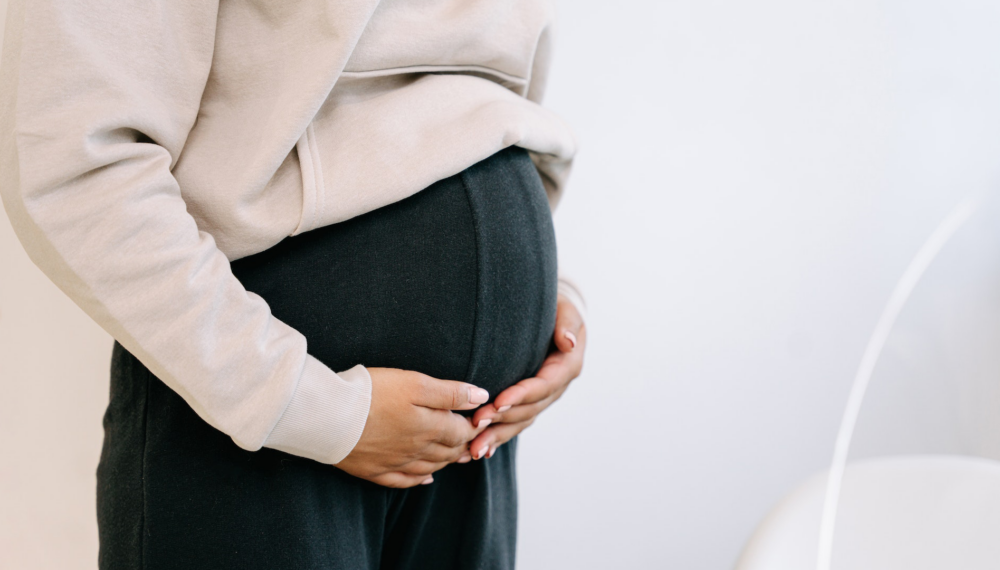Tinnitus and pregnancy
Tinnitus in pregnancy is very common and although it can be scary at first, it is usually temporary, and generally not a symptom of anything more serious.
The incidence of tinnitus in pregnancy is higher than in the general population. Tinnitus is the most common ear complaint reported during pregnancy affecting over one in three women compared to one in ten women of a similar age who are not pregnant.
Two in three women who have tinnitus before pregnancy report an increase in their tinnitus during pregnancy, especially during the middle trimester (months four to six).
For those who first experience tinnitus during pregnancy, it is often present throughout the pregnancy and resolves or reduces after the baby is born.
Pregnancy is a time of both physical and emotional demands. It can be worrying if you experience tinnitus for the first time during pregnancy or notice an increase in your existing tinnitus. However, these changes are usually temporary.
What is tinnitus?
Tinnitus is the sensation of hearing a sound when there is no external source for that sound. Someone with tinnitus may hear ringing, buzzing, hissing, whistling or other noises. The sensation can be there all the time or come and go. The volume of the noises heard can vary from one episode to the next. The sound may feel like it’s in one ear, both ears or somewhere inside the head.
How does pregnancy affect tinnitus?
The nerve cells present in the cochlea (a structure in the inner ear) convert vibrations caused by sound waves into electrical impulses which travel via the auditory nerve into the brain. Physical changes which may occur during pregnancy can interfere with this sensitive process which can account for the new or increased perception of tinnitus.
One cause can be an increase in circulating blood volume and an increase in blood pressure, a normal change in pregnancy. The inner ear is surrounded by several major blood vessels and this increase in pressure is transmitted directly to fluid inside the cochlea. This fluid regulates electrical impulses from the inner ear to the brain. Changes in pressure in the cochlea may lead to alterations in these electrical impulses and the perception of tinnitus.
Another cause can be the natural retention of salts and water that occur during pregnancy. This can lead to localised swelling which, if affecting the tissues surrounding the cochlea, may alter electrical impulses between the ear and brain and affect tinnitus.
Natural changes in circulating levels of the hormones oestrogen and progesterone may also be a factor. These chemical changes can alter the nerve cell activity of the inner ear and causing or increasing tinnitus.
Given a likely connection to raised blood pressure, tinnitus can be an early warning sign of gestational hypertension or pre-eclampsia which is a potentially serious complication of pregnancy.
What should I do?
If you are pregnant and experiencing tinnitus for the first time or notice an increase in existing tinnitus, you should talk to your midwife or GP. Letting them know promptly is recommended to rule out potential complications of pregnancy and to get appropriate management and monitoring. If your tinnitus is accompanied by a new hearing loss then you should be referred to an Ear, Nose and Throat (ENT) or audiology clinic for investigation.

What can reduce the noises?
Hopefully, you have found the information here reassuring and helpful. That in itself can have a positive effect on your tinnitus.
It’s quite common to feel worried when you first experience tinnitus. Relaxation techniques may help to reduce your stress, making your tinnitus less noticeable. People who use relaxation techniques say they reduce the loudness of their tinnitus and help them become indifferent to it.
If the noises seem louder at quiet times, particularly during the night, it may help to try sound therapy. Some people listen to the radio or play music, others prefer to use more ordinary sounds from around the home, like a clock ticking or a fan blowing gently. There are also CDs and apps you can use which play natural sounds, like the waves on a beach or gentle rain. There are other techniques you could try to help with sleep.
Our free tinnitus e-learning programme Take on Tinnitus tells you more about tinnitus and tinnitus management techniques.
Help and support
Our Tinnitus Support Team can answer your questions on any tinnitus related topics:
- Telephone: 0800 018 0527
- Web chat: – click on the icon
- Email: h[email protected]
- Text/SMS: 07537 416841
We also offer a free tinnitus e-learning programme, Take on Tinnitus.
Images:
Pregnant woman: by Ivan Samkov on Pexels.
